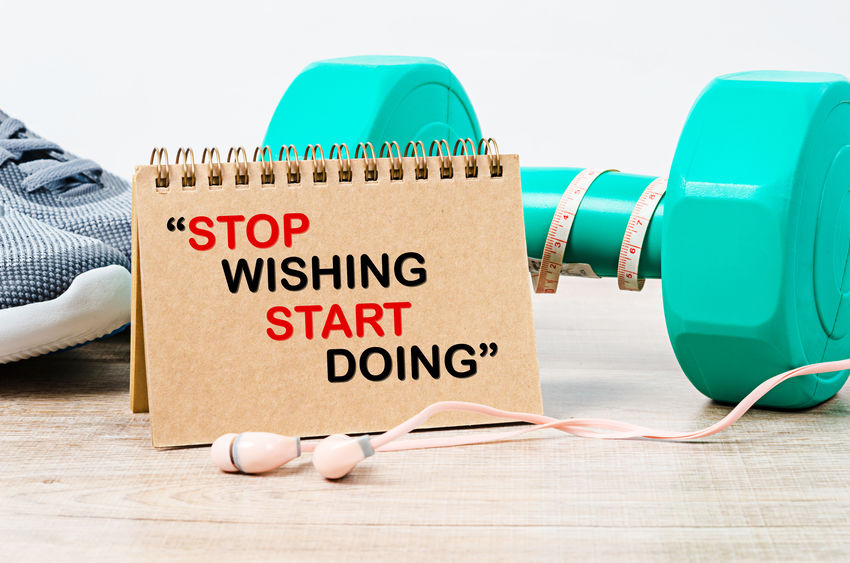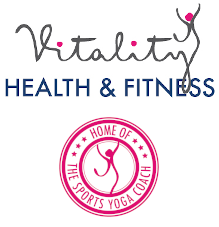
Weight Loss: What Stops us from Getting Started?
Some people think that staying at a healthy weight is a natural thing. They’re wrong. We live in an obesogenic society and over 64%* of adults in the UK are either overweight or obese. This has massive consequences for long-term health. It is quite possible to sustain a healthy weight and maintain a good quality of life both now and in later years, but we need to be intentional about it.
Losing weight can seem like hard work. It’s a complex thing and both our conscious and unconscious thoughts influence our success. This article will help you decide what you want for yourself. We examine some of the common ‘stories’ we tell ourselves, or patterns of thinking we experience, that stop us from making a start. Which ones do you recognise?
“It will be miserable because I won’t be able to eat my favourite foods or drink alcohol.”
When a balanced approach to weight loss is taken, no food or drinks need be off limits. It’s important to look at the bigger picture of what and how we eat. Retraining the appetite, managing portion size and choosing foods that keep us full for longer, so we’re not hungry, are all important. Managing cravings is a skill we can all master.
With the right tools and support, it needn’t be miserable at all. You might even start to enjoy it!
“I need a ‘fast start’ to motivate me if I am to lose weight.“
There’s no doubt that losing a few kilos in a short period of time can make us feel good about ourselves. Often people target weight loss around a life event such as a wedding or holiday. Unfortunately, this event may not be quite far enough in the future to allow the target weight to be reached easily!
This is what’s behind seductive ‘lose weight quick’ programmes. Such programmes are usually unsustainable in the long term and the initial euphoria can quickly turn into disappointment and self-loathing.
Slow and steady weight loss, combined with education and activities to help change your relationship with food and reshape some of those unhealthy habits, is a more sustainable approach. That said, the very act of focusing on health can mean, for a great many people, that weight comes off most quickly at the beginning of the journey.
“I don’t have time right now to focus on losing weight.”
This is a common one. Being intentional about weight-loss means dedicating time to it. We have busy lives with competing priorities but the number of hours in the day is fixed, so we need to choose those priorities carefully and not let them choose us. We’re all familiar with the analogy in air travel that if oxygen levels in the cabin drop we should fit our own oxygen mask before helping others.
If lack of time is your ‘reason’, here are two questions to consider:
- If not now, when will be the right time to invest in your health?
- What would it mean for those who rely on you if you transform the way you eat / lose weight / get fitter?
“Some people are genetically pre-disposed to being thin (sub-text: and I’m not one of them!).”
The science on this is complex. There is a wealth of evidence that biological mechanisms regulating appetite, satiety and body weight are dysfunctional in obesity (defined as a BMI of 30 or over). For example, people with obesity may have low levels of appetite-suppressing hormone leptin and high levels of ghrelin, the ‘hunger hormone’, which triggers appetite. Income, family background and ethnicity also play a part in obesity levels. If you suspect these factors may be at play, it is worth consulting a health professional.
For most of us, given our modern environment with sedentary lifestyles, a heavy reliance on processed foods and increasing portion sizes, there is a lot we can do to maintain a healthy weight regardless of our genetic pre-disposition.
“I hate exercising, so weight loss is a non-starter for me.”
To lose weight we need to create an energy deficit by using up more energy than we take in from food and drinks. Cardiovascular exercise helps us do this because cardio burns energy faster. Studies have shown that, whilst exercise is particularly effective to help maintain a new lower weight, the effect of exercise on weight loss itself is less significant. In other words, during a weight-loss phase, addressing how and what you eat outweighs by far the effects of exercise on your results. Only about 1% of people who lose weight do so through exercise alone without addressing what they eat.
This is good news if you’re not exercising much at the moment. You can focus on managing what you eat, and you will still start to get results. Meanwhile you can experiment with ways to move your body and find forms of exercise you really enjoy.
“I’ll be no fun if I diet or change to a healthier lifestyle.”
When we commit to a lifestyle change it can be scary to think we may lose a part of ourselves that is valued by, and helps us connect with, other people.
The truth is that you’ve read this far because, at some level, you want to make a change. You can’t know what impact that change will have until you take the first step. And when you do, you’ll be in charge of your own journey.
“I feel overwhelmed and don’t know where to start.”
The most important thing to remember is that you don’t have to make a lifestyle change overnight. It is best tackled over several weeks, step by step. Joining a structured programme helps you focus on small, manageable changes.
Don’t know where to start? Start at the beginning – by taking the first step.
And finally, maybe you’re just not ready
It’s interesting how people who make big changes in their lives will often comment that they were ‘just ready’. There is no scientific or magical explanation for this.
There’s a lot going on in the world at the time of writing and it is a time to be kind to yourself and your body, as well as to others. When it’s right for you, you’ll know. Above all, listen to your inner wisdom.
*Health Survey for England 2017
Written by Helen Krag
Footnotes:
The online Momenta Weight Loss Programme with Helena Shirley and Helen Krag runs for 12 weeks from 13 January 2021.
This is one of a series of articles about weight loss, nutrition and exercise. You’ll find more on the blog.





